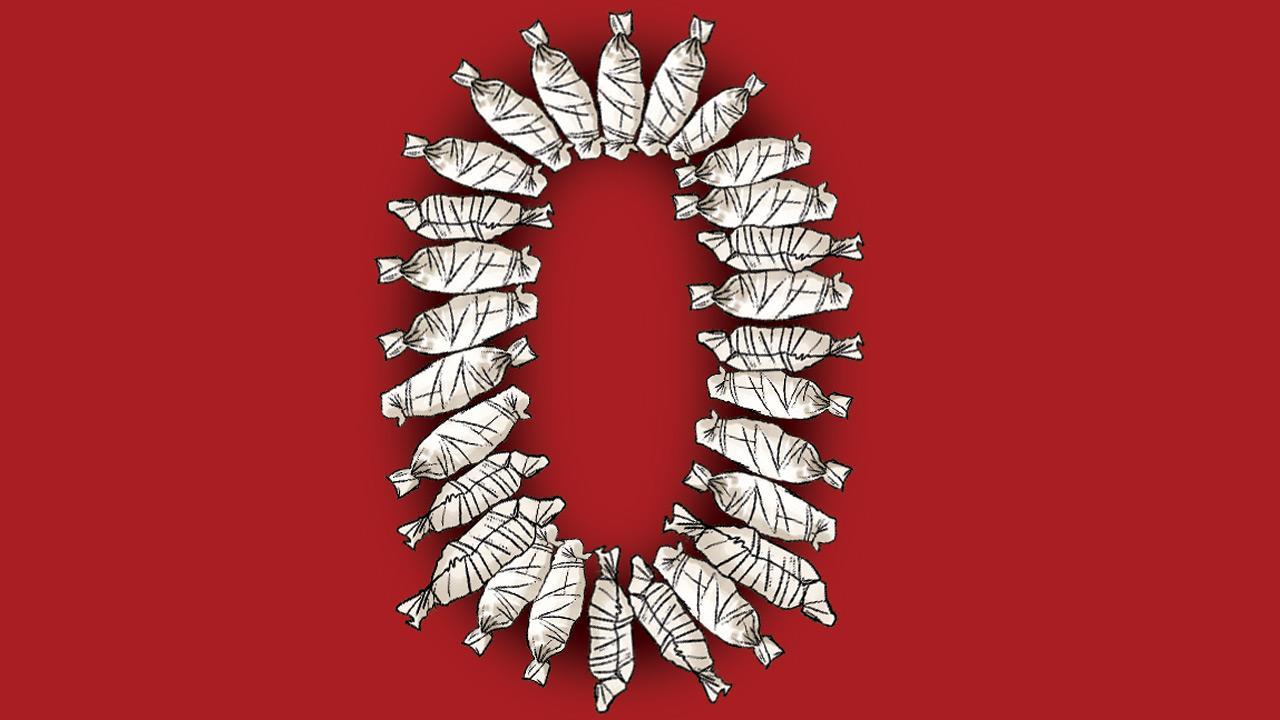Yes, deserted by the system, whom did people have to turn to with their plaints in the nightmarish weeks of the second wave? No one to listen to you, makes you alone

Illustration/Uday Mohite
Early one morning, I watched a video clip of a speech by Rajya Sabha member and Rashtriya Janata Dal (RJD) spokesperson Professor Manoj Kumar Jha and wept. I couldn’t help it. There were so many words in that speech I never realised my soul was longing to hear.
ADVERTISEMENT
Like, shikayat. “Kahan jaata apni shikayat leke?” asked Professor Jha as he talked about writing an article in desperation. Yes, deserted by the system, whom did people have to turn to with their plaints in the nightmarish weeks of the second wave? No one to listen to you, makes you alone.
He said apology—an apology is owed to those denied dignity in death by a failed system. In a world dedicated to power, the word sorry is an admission of guilt and must never be uttered if we want to cling to our power. In a world of compassion though, sorry also means sorrow—distress at someone’s suffering. But those are not words we hear from our government much, in general, when its fellow citizens are suffering. Perhaps for that, one must think of all citizens as fellow citizens.
Last week, a young photographer, Danish Siddique died in Afghanistan. Many who knew him were shattered. Many who did not know him were also shattered, for he had entered our lives through his photographs, dramatic and precise, but also, humane. Condolences came from around the world—but was not from our own head of state.
Because Siddique had photographed the grids of burning pyres in the second wave, the online right wing rejoiced at his death. In not feeling sorrow for the suffering of others, they may dehumanise the sufferers. But they also dehumanise themselves. Not just the dead, they, the living, have also allowed themselves to become just a number. A number on a viral tweet, a number in a voting bloc, a number that lines up with a side.
Governments argue about numbers. We watch the number of cases obsessively as they drop. Because the numbers drop, does it mean the suffering is over? I am still writing condolence messages every day —aren’t you? India has had four million excess deaths. For those who have lost their loved ones, the shadow of pain is sharp in the searing heat of loss and economic hardship too.
Professor Jha named some departed colleagues from Parliament. “Raghunath Mahapatra—whenever he met he would embrace us and say Jai Jagannath,” he said, bringing a dead friend back to life from the coffin of statistics for a minute with his anguish. By expressing the experience of loss, he acknowledged the pain of other Indians, each of whom, as he pointed out, have experienced some similar loss, invoking our human inter-connectedness. He asked the House to consider the Right to Health and Work as extensions of the Right to Life. To do that, would mean looking at people’s needs with a compassionate eye, not only a calculating one. Or to put it in Professor Jha’s words—apni peeda mein ankda dhoondiye (look for the numbers through your pain).
True. Words and numbers derive meaning from each other. The government did that as they declared how many deaths had occurred due to lack of oxygen in the second wave. They found a number equal to their pain. Zero. As you know, India invented it in the Golden Past.
Paromita Vohra is an award-winning Mumbai-based filmmaker, writer and curator working with fiction and non-fiction. Reach her at paromita.vohra@mid-day.com
 Subscribe today by clicking the link and stay updated with the latest news!" Click here!
Subscribe today by clicking the link and stay updated with the latest news!" Click here!






